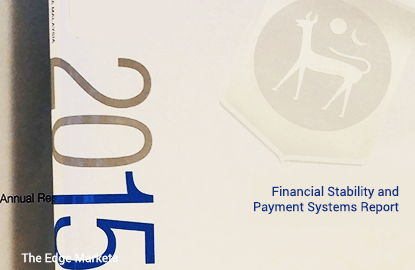
KUALA LUMPUR (March 23): The period of adjustment in consumer spending following the introduction of the goods and services tax (GST) in April last year could be more prolonged than earlier anticipated, said Bank Negara Malaysia (BNM) in its annual report 2015.
This is due to additional exogenous shocks to the economy in the form of a more subdued global growth environment, a fall in commodity prices and a depreciation of the ringgit exchange rate.
These shocks had cumulatively resulted in increased uncertainty and affected business and household sentiments, added the central bank.
"Nevertheless, looking ahead, the impact of GST is expected to decline, as continued income growth and stable job market conditions provide fundamental support to household spending.
"Supporting measures by the government would also provide some impetus to consumption activity," said BNM.
It is envisaged that private consumption will continue to grow in the near to medium term, albeit at a more moderate rate compared to the average growth of 7.1% for the past five years.
BNM noted that the introduction of the GST at 6% on April 1, 2015 led to a temporary change in household spending patterns, and the adjustment process is still continuing.
The post-GST period has seen a downward adjustment in consumer spending. Household spending moderated in second quarter of 2015 to 6.4% and reached a trough of 4.1% in the third quarter, before recovering to 4.9% in the fourth quarter of that year.
"As expected, the surge in consumption expenditure during the period leading up to the GST introduction was only temporary. As with the experiences of other economies that introduced a new consumption tax, private consumption growth in Malaysia moderated during the quarter of implementation," said BNM.
"Households adjusted to the rise in prices by changing their consumption patterns, particularly by cutting down on discretionary spending. Retail trade experienced a broad-based moderation across most consumer goods, particularly household equipment, food, beverages and tobacco. Credit card spending and M1 also registered lower growth rates of 0.6% and 8.4% respectively, during April–May 2015.
"Similarly, after the accelerated growth of 14% in March 2015, passenger car sales contracted by 10.8% in the second quarter of 2015 compared with the same period in the previous year," it added.